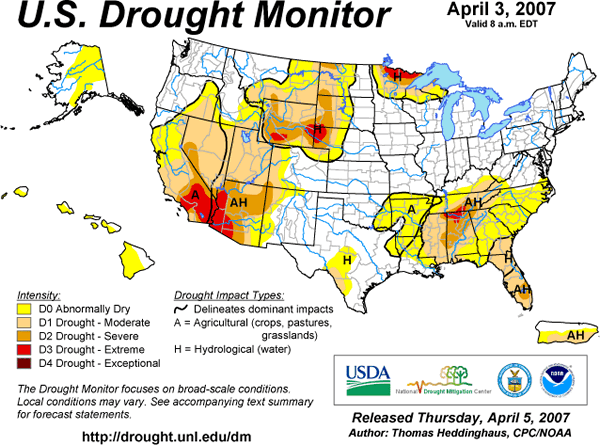


Consider the water wasted in the household that could be used in the landscape. Before your bath or shower (yours and others in your household) collect the water that otherwise would go down the drain during the initial mixing of hot and cold. Use a bucket or large watering can to collect the water while you adjust the temperature.
Allow lawn grasses to grow slightly higher during times of drought.
Stay out of the sun during the hottest part of the day. Become familiar with heat disorder symptoms, heat-related illnesses and other safety tips.
Consider Native Plants. Indigenous plants can take a full year to become established, but will always be the survivalists of the local landscape.
Consider deep-rooted plants that are sometimes considered drought-tolerant, but are actually better able to access ground water. Forget the myth that xeriscaping consists of cacti and succulents, and examine the many Xeriscaping and Conservation links for gardeners on the Web.
Use dishwashers and washing machines for full loads only. Instead of hot water, consider using cold or warm for laundry. Don't use the heat drying option on your dishwasher, and consider using a clothesline instead of the dryer. This will keep your house cooler as well.
Turn the water off when you brush your teeth -- keeping the faucet on can waste up to 15 gallons of water every time you brush. Also, rather than letting the water run, fill the basin when you shave, or when you wash dishes.
Follow state and local restrictions on watering lawns and washing cars.
Replace the air conditioner's filter if it's dirty and check to see that the coils are free of debris.
Scorching days may bring heavy smog, which can damage the lungs. Everyone is affected by smog, but children and the elderly are the most vulnerable.